While the screen industry’s entrenched inequality cannot be overcome by a single film festival, any effort to champion more female voices certainly makes a difference. Europe! Voices of Women in Film is one such ongoing initiative, with Sydney Film Festival putting in a concerted and enthusiastic effort to highlight women directors from Europe and their work in Australia.
Born of a collaboration with European Film Promotion, the programme strand debuted in 2016 and is still going strong eight festivals later. In that time, more than 75 female filmmakers have seen their features play to Sydney viewers so far, with the bulk also travelling Down Under to present their titles.
At 2023’s festival which runs from June 7-18, ten more women directors will join the celebratory spotlight, most with their debut features.
“The Europe! Voices of Women in Film program’s eighth edition shines a light on exceptional women filmmakers, amplifying their voices in an industry burdened by gender disparity,” says Sydney Film Festival director Nashen Moodley, who has overseen the event for 12 years now.
“Featuring films from Italy to Denmark, and Ireland to Estonia, the programme serves as a platform for the diverse experiences and narratives of European women.”
Álfrún Örnólfsdóttir, Band (Iceland)
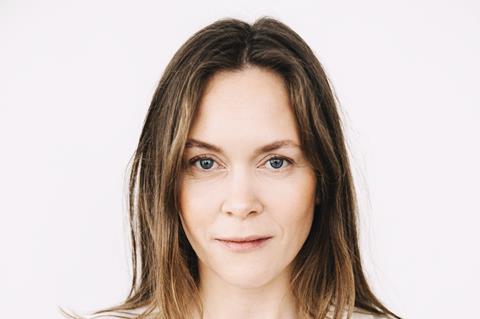
With credits as an actress dating back to 1992’s As In Heaven, Örnólfsdóttir has been appearing onscreen for more than 30 years. A theatre veteran as well, she decided to make a change seven years ago. “I did an MFA in performing arts that turned out to be an eye-opening experience, and gave me confidence to be an artist who works in different genres and moves between art forms without experiencing imposter syndrome,” she explains.
“I am always curious about trying new formats of storytelling, and the story I wanted to tell this time made most sense using the cinematic language,” Örnólfsdóttir says of Band, which bowed at the 2022 edition of Hot Docs in Toronto.
Her documentary tells of her own musical outfit, The Post Performance Blues Band, an electro-punk performance-art band. “Sometimes I felt like I was living inside a film,” she says. “We found ourselves in situations that were so ridiculous that there was no doubt in my mind I had to make a documentary about us.”
Asimina Proedrou, Behind The Haystacks (Greece-Germany-North Macedonia)
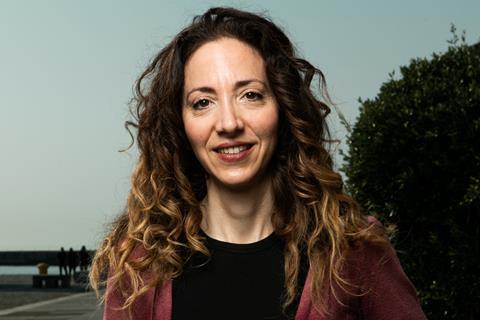
While Proedrou was making her feature directorial debut Behind The Haystacks, she was still working as an economist. “Although I always wanted to become a film director, for many different reasons I studied economics at the Athens University of Economics and Business and, after my master’s degree in finance, I started working as an accountant for a mining company,” she explains. “However, I was very passionate about cinema. I started studying film directing together with my daily job.”
Fourteen years into that job, by which time she had two successful shorts under her belt and was in post-production on Behind The Haystacks, Proedrou made the permanent move to directing. “I felt that at some point, I finally had to take the risk,” she says.
Red Hulk, her first short, won awards at the Drama International Short Film Festival and Athens International Film Festival. Behind The Haystacks received six accolades at the 2022 Thessaloniki International Film Festival
Milena Aboyan, Elaha (Germany)
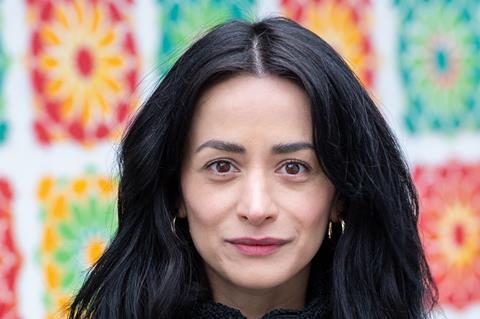
“I come from a working-class family, access to art and culture was not possible for me – I always thought it was reserved for privileged people, especially men,” says Armenian-born Yazidi Kurd filmmaker Aboyan. “But I was often angry about the lack of representation of women and marginalised groups on television and in cinema. So, you could say that my inspiration or drive to become a filmmaker came from anger about a deficit.”
Aboyan initially became interested in directing while studying acting in Germany in 2010. After earning her acting degree, she “did a lot of small jobs and internships in the film industry to gain practical experience, so that I could even qualify to attend a film school — most of which require a practical year in the industry for admission.” From 2015, she studied screenwriting at the Filmakademie Baden-Württemberg.
Before her feature directorial debut Elaha, which premiered at this year’s Berlinale in the Perspektive Deutsches Kino strand, Aboyan helmed short films, including 2017’s Sonne Scheint Uber August and 2018’s Der Greteltrick.
Tia Kouvo, Family Time (Finland-Sweden)
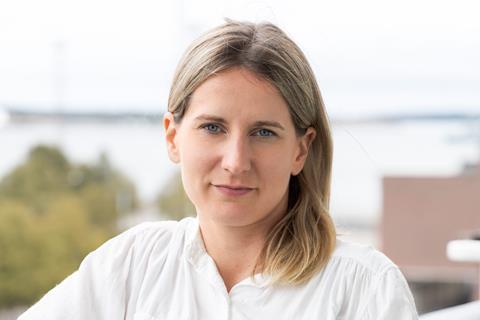
“When I was in my twenties, I wasn’t sure if I wanted to make films or become an author,” says Finnish filmmaker Kouvo. “I decided on filmmaking because I thought doing only writing would be too lonely. I also love the challenge and risks in filmmaking, and I felt the world needs more female filmmakers. I wanted to become a female filmmaker who conquers the [film] world.”
That’s how the Family Time writer/director describes her inspiration to pursue filmmaking after studying social psychology. “The turning point was the film school I went to, HDK-Valand Academy of Art and Design in Gothenburg. There, I found my own voice and was challenged by the teachers to go further and further,” she advises.
Family Time is Kouvo’s first feature and premiered in Berlin’s Encounter competition section in February. Her c.v. also includes shorts Chat and We Retired People, plus participating in the Torino Feature Lab and Nordic Film Lab in 2021.
Marta Savina, The Girl From Tomorrow (Italy-France)
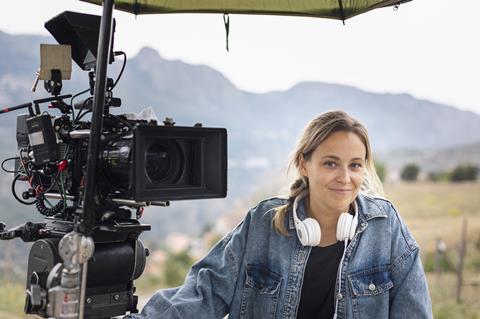
When The Girl From Tomorrow screened at the 2022 BFI London Film Festival, it gave Italian writer/director Savina her latest high-profile festival premiere. Her 2017 short Viola, Franca bowed at Tribeca Film Festival. That same year it also won best drama and the Bricker Humanitarian Award at the Academy of Television Arts & Sciences Foundation’s student-focused College Television Awards.
Savina’s background spans studying philosophy at King’s College London, then graduating from UCLA’s MFA directing programme. She co-helmed Mississippi Requiem, which turns four William Faulkner stories into short films; worked with Francis Ford Coppola on his experimental film project Distant Vision; and directed two episodes of Italian television series Summertime in 2022.
With both Viola, Franca and her first feature The Girl From Tomorrow, Savina draws from true stories to direct attention towards horrendous Italian customs that once decreed that women who were sexually assaulted should marry their rapists.
Malene Choi, The Quiet Migration (Denmark)
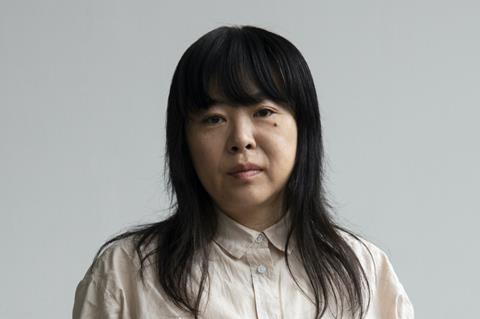
Born in South Korea and raised in Denmark, Choi turned the experiences of Danish-Korean adoptees making their initial pilgrimages to their homeland into The Return, a 2018 docudrama that earned awards from film festivals in Brussels, Rotterdam and Jeonju.
With The Quiet Migration, she again ponders the yearning to connect with one’s heritage. This time, the focus is the “struggles of being an Asian man in a western context, not being able to live up to the expectations of masculinity and beauty standards in their new adoptive family’s countries,” Choi advises. She will return to the subject again, with her two features so far part of a planned trilogy about transnational adoption.
Choi brings a documentarian’s eye to the topic, following studies at European Film College, training in factual filmmaking at The National Film School of Denmark and starting her career behind the lens with documentary shorts in 2005 and 2008.
Anna Hints, Smoke Sauna Sisterhood (Estonia-France-Iceland)
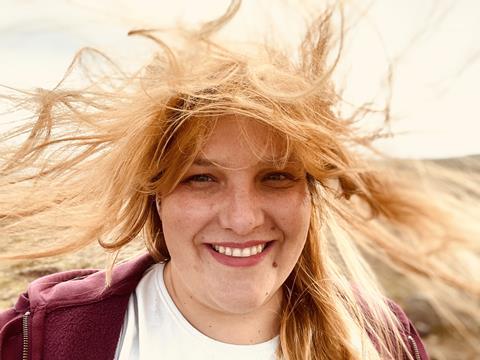
Winner of the World Cinema – Documentary Directing Award at the 2023 Sundance Film Festival, Estonian filmmaker Hints gets “intimate, immersive, visceral and deeply personal”, as she describes, with her examination of women embracing the age-old smoke sauna tradition in her nation’s south.
Her first feature-length film, Smoke Sauna Sisterhood is the writer/director’s latest documentary with ties to her own life and history following her 2021 short For Tomorrow Paradise Arrives, which saw Hints — an active dumpster diver of more than three years — call attention to food waste in Estonia.
Studying folklore, photography and literature before attending Tallinn University Film and Media School at the age of 28, Hints calls herself “a very intuitive filmmaker”. She continues: “In writing, in editing many ideas, scenes appear to me in my dreams. I follow my inner impulses, my gut feelings. Rationalising something is not enough to me, I have to feel the truth from my guts.”
Claire Dix, Sunlight (Ireland)
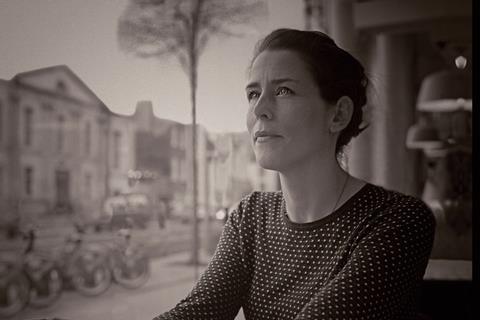
With Sunlight, Dix reunites with Ailbhe Keoghan, who wrote the Dublin-based director and screenwriter’s 2017 short film Take Me Swimming. “There are also themes in that film about the right to choose the time of your own death and what that means to those you love. After making that short, Ailbhe felt she had more to say and that there was more to explore on these themes,” she says.
Before the pair’s collaborations, Dix began helming shorts with 2009’s Free Chips Forever!, then made her feature debut with 2013 Dublin International Film Festival audience award-winner Broken Song.
Inspired to pursue filmmaking after seeing Wim Wenders’ Paris, Texas, she brings a lifelong love of writing and interest in photography from university to the medium. Dix describes reaching this point in her career as the result of “perseverance and because I’m not driven by making money”.
Nafiss Nia, That Afternoon (Netherlands)
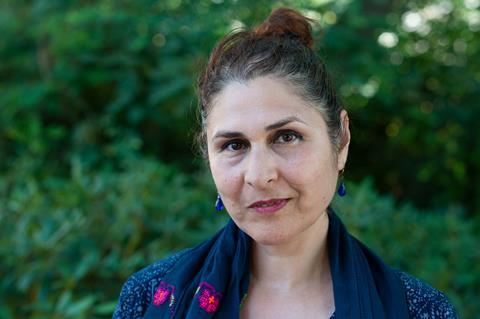
As a shy child in Isfahan, Iran during the 1980s, Nia was enrolled in a film course by her mother. “Filmmaking is something you do with others. She hoped it would draw me out of my shell,” she explains. “Whether that succeeded, I don’t know, but the film fire was certainly kindled.”
After fleeing to the Netherlands in 1992, Nia studied screenwriting at the Film and Television Academy in Amsterdam; however, when producers and broadcasters weren’t initially interested in her work, she published three collections of poetry. In 2012, she also became the business and artistic director of the Granate Foundation, an organisation dedicated to inclusivity in Dutch cinema and poetry.
“Film remained my first love,” the Iranian-Dutch writer/director notes. Premiering in January at International Film Festival Rotterdam and drawing inspiration from the stories of Haruki Murakami, as well as the cinema of Alfred Hitchcock and Yasujiro Ozu, That Afternoon is her debut feature.
Carmen Jaquier, Thunder (Switzerland)
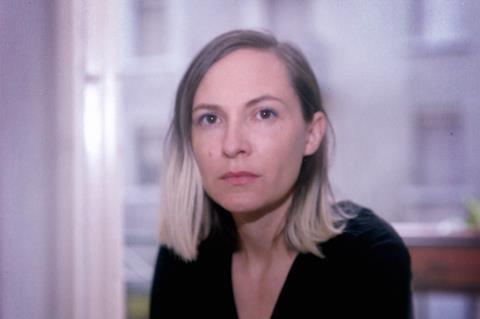
“Curiosity, love, anger. Faces, landscapes, voices. Godard, Spielberg, Akerman.” That’s how Geneva-born writer/director Jaquier explains her inspirations, and the reason she took the “step by step” path to becoming a filmmaker.
Her journey started with attending the École cantonale d’art de Lausanne, then progressed to making short films The Girls’ Grave, The Waves and At The Mermaid Parade. In 2022, her first feature Thunder premiered at the Toronto International Film Festival — and in 2023, it earned her a Swiss Film Prize nomination for best film.
Unpacking a 17-year-old girl’s rebellion against the strictures of village life at the turn of the 20th century, Thunder is inspired by “the silence of women, their secret strengths that are not part of history” and “the origin of a first kiss as a transcendental experience,” Jaquier notes.
Also on her c.v. is 2015’s Wonderland, an anthology film celebrating the next generation of Swiss filmmakers.






![The Brightest SunScreen[Courtesy HKIFF]](https://d1nslcd7m2225b.cloudfront.net/Pictures/274x183/3/5/0/1448350_thebrightestsunscreencourtesyhkiff_312678.jpg)


















No comments yet